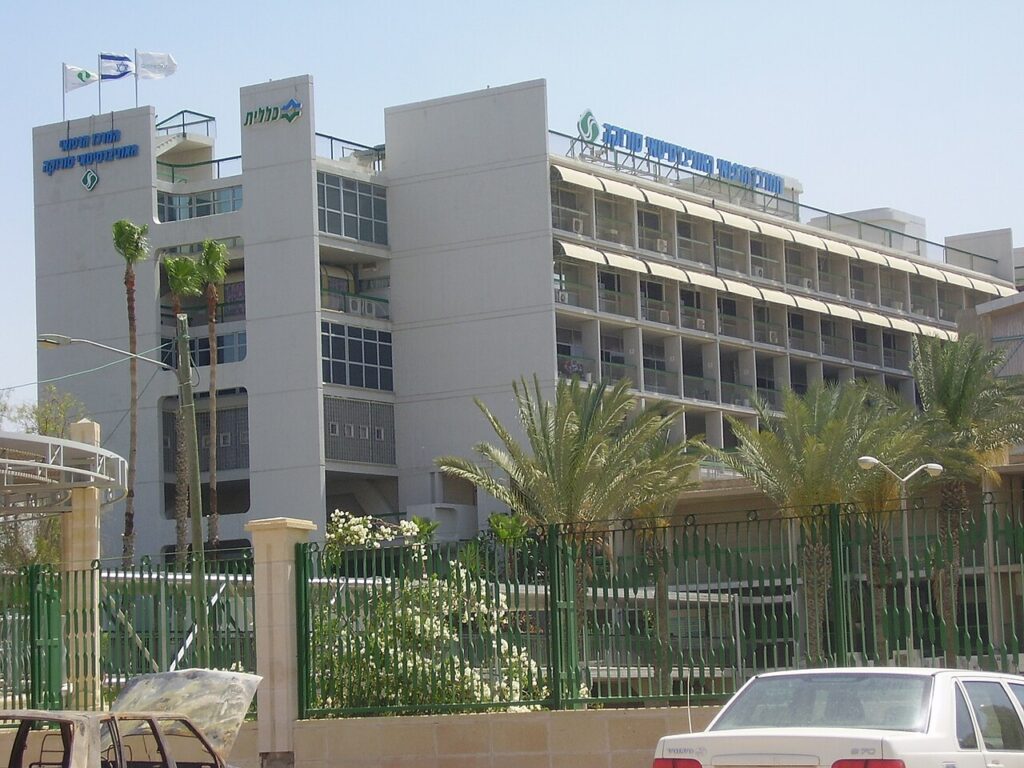
(Scypre.com) – In a dramatic escalation of hostilities between Iran and Israel, a ballistic missile launched by Iranian forces struck Soroka Medical Center in Be’er Sheva overnight, wounding over 270 people and drawing international outrage. Among the injured were hospital staff, patients, and civilians in nearby buildings. The strike marks one of the most direct attacks on civilian infrastructure in the long-standing shadow war between the two nations and has triggered an immediate and forceful reaction from Israel’s leadership.
Israeli Prime Minister Benjamin Netanyahu, addressing the nation from the scene of the attack, vowed a devastating response. “Iran’s regime will pay the full price,” he said, branding Tehran’s leaders as “terrorist tyrants” responsible for an unprecedented act of war against Israeli civilians. Defense Minister Israel Katz echoed these sentiments, going so far as to declare that Iran’s Supreme Leader, Ayatollah Ali Khamenei, “should not continue to exist,” signaling a potentially aggressive Israeli counteroffensive in the coming days.
Iran has claimed the strike on the hospital was a direct response to Israel’s bombing of its Arak heavy water reactor two days earlier. Iranian state media described the missile barrage as a necessary act of self-defense and warned that any U.S. involvement would provoke a wider regional conflict. Israeli officials, however, have dismissed this justification, emphasizing that striking a hospital constitutes a clear violation of international law and could amount to a war crime.
Global reaction has been swift. The United States condemned the attack, with President Trump stating that while all options are on the table, his administration is not yet committing to direct military involvement. European leaders have called for an emergency summit in Geneva aimed at de-escalation. The United Nations has issued a statement urging both sides to cease hostilities and protect civilian populations. Meanwhile, Russian President Vladimir Putin has offered to mediate, suggesting that Russia could act as a buffer while negotiations are arranged.
The human toll of the attack is still unfolding. Soroka Medical Center, the largest hospital in southern Israel, has been forced to operate under emergency protocols. Critical care units were damaged in the blast, and medical teams are now working under extreme conditions. Eyewitnesses described scenes of chaos as patients were evacuated under missile sirens and smoke filled parts of the building. In Iran, citizens in Tehran and near military targets have begun evacuating areas amid fears of incoming Israeli retaliation.
Strategically, Israel has already begun striking back. The Israeli Air Force has targeted Iranian military and nuclear assets at Natanz, Arak, and other key facilities. While Iranian capabilities have reportedly been weakened, intelligence sources believe Tehran still possesses hundreds of operational ballistic missiles. Both nations appear braced for extended conflict, with political rhetoric intensifying and diplomatic pressure mounting.
This missile strike on a civilian hospital has shifted the Israel-Iran conflict from shadowy proxy skirmishes and covert operations into open confrontation. The psychological and political shock of a hospital being targeted has amplified global attention, and many fear the next 48 hours may define whether the region plunges into all-out war or steps back from the brink. As both sides harden their positions, the world watches with growing urgency, hoping for diplomacy to take hold before the consequences become irreversible.